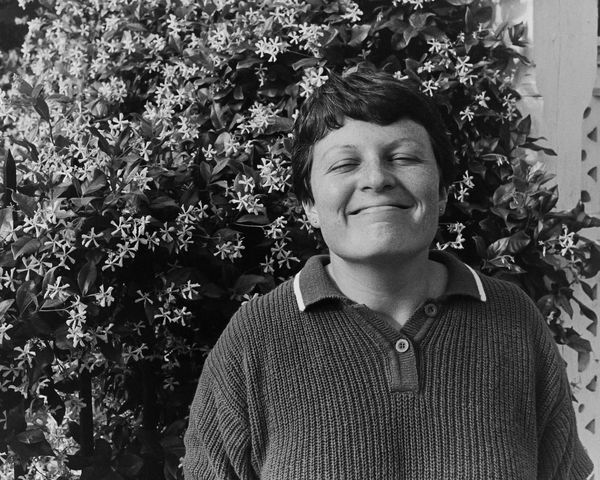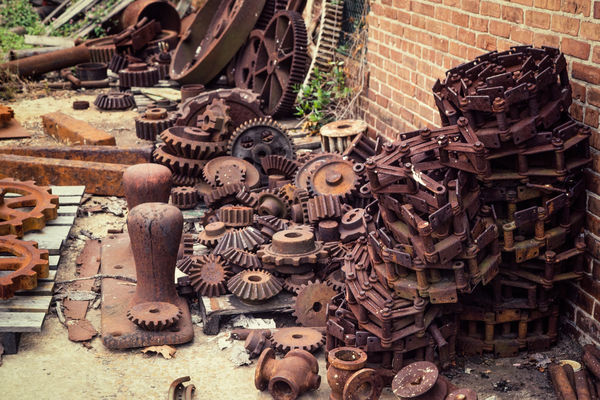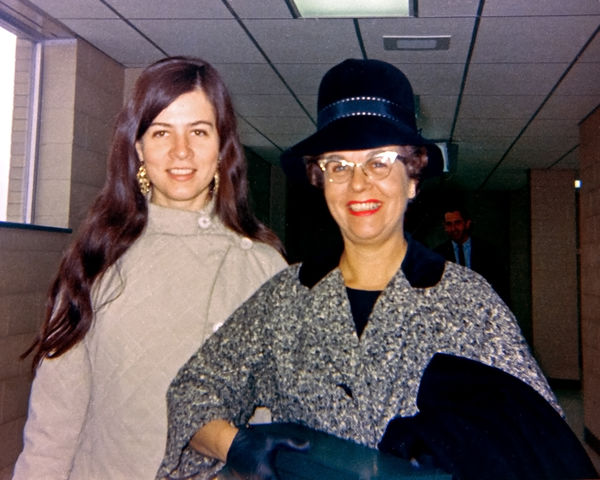film to digital archival conversion
Mar 4, 2018 19:17:51 #
drlballa
Loc: chicagoland
I'm getting ready to retire and convert all those steel slide boxes and thousands of 35mm sleeves into the new realm of storage.
I'm not a professional, however have a discerning technical interest in this art, and have a question of balancing quality and affordability.
I bought an Epson scanner a few years ago, thinking it would be suitable, but the dynamic range appeared inadequate, perhaps from the included
software, and a lack of resolution.
So I'm coming here to first ask about expected resolution. I would hope to retain my original resolution. If my slides are 35mm Kodachrome, shot on Canon with
prime lenses, what could I expect the best case resolution to be?
The home scanners that I've seen don't give impressive specifications. A drum scanner (I'm old school) is beyond my means. And, I'd be broke if I had all this done by a lab.
So, it brings me back to whether using my 24MP Nikon and copy stand might be a workable/cheap solution, and give me the best results.
I don't know if I'd need to over-ride the camera software for best results.
I'd love to hear some ideas from this bright and resourceful group. Thanks!
I'm not a professional, however have a discerning technical interest in this art, and have a question of balancing quality and affordability.
I bought an Epson scanner a few years ago, thinking it would be suitable, but the dynamic range appeared inadequate, perhaps from the included
software, and a lack of resolution.
So I'm coming here to first ask about expected resolution. I would hope to retain my original resolution. If my slides are 35mm Kodachrome, shot on Canon with
prime lenses, what could I expect the best case resolution to be?
The home scanners that I've seen don't give impressive specifications. A drum scanner (I'm old school) is beyond my means. And, I'd be broke if I had all this done by a lab.
So, it brings me back to whether using my 24MP Nikon and copy stand might be a workable/cheap solution, and give me the best results.
I don't know if I'd need to over-ride the camera software for best results.
I'd love to hear some ideas from this bright and resourceful group. Thanks!
Mar 4, 2018 19:27:45 #
drlballa wrote:
I'm getting ready to retire and convert all those ... (show quote)
No idea what scanner you are referencing, but I have used Epson Photo scanners to scan slides and negatives for almost 10 years now and find their dynamic range and quality unmatched by any other method short of drum scanners costing hundreds of times more. I started with the Epson Photo V500, added the V600 about 4 years ago, and just last year added the V850 model. I scan literally thousands of slides and negatives from 110 to 8x10 every year for customers in my store and could not imagine doing so with anything else.
Several of my customers are historical societies that are extremelt discriminating in the results they require.
Mar 4, 2018 19:48:56 #
drlballa wrote:
I'm getting ready to retire and convert all those ... (show quote)
I look at specs, but ultimately I look at pictures. I had over 5K slides at one time. I purchased a Nikon LS-2000 scanner from a guy who refurbishes them. It takes roughly seven minutes to scan a slide, taking 16 scans of each line, using 16 different angles and then using parallax alleviate surface issues. Since this takes so long, later I purchased an Epson flatbed scanner, but it faithfully reproduced every imperfection, and sometimes an area of brightness would bleed into an adjacent area of darkness, so l repurposed it. Later I purchased a slide scanner from Plustek, which scans each line twice, enough to avoid the "bleed" problem, but not enough to protect against other issues, so I've sent the LS-2000 in for CLA twice. No loss of detail or color depth is evident with the LS-2000; I didn't use the other two enough to comment on them. I am still looking for more media, but I believe the ones remaining number under a thousand.
Mar 4, 2018 19:51:57 #
Decide if you have the time commitment to do this yourself. If so, get an Epson 850; if not, Scancafe.
Mar 5, 2018 06:52:04 #
Mar 5, 2018 06:52:43 #
Interesting feature of Nikon's D850 in that it has an attachment for the purpose of converting slides and 35mm film to digital. Just got and 850 but did not, at least as yet, ask the cost of the attachment. What strikes me is that you can take this wherever you want to work - you're not confined to your scanner's location.
Mar 5, 2018 10:09:05 #
drlballa wrote:
I'm getting ready to retire and convert all those ... (show quote)
I use a macro lens and digital camera to copy my slides and negs. I finish them in Lightroom and/or Photoshop. Here are a few:
Ilford FP4 neg from 1986

(Download)
Kodachrome 64 from 1983 (taken near dusk, hand-held, f/2.8, 1/30

(Download)
1967 Kodacolor 126 Instamatic negative

(Download)
Mar 5, 2018 10:14:23 #
drlballa wrote:
I'm getting ready to retire and convert all those ... (show quote)
Way back in the 1980s, I had two very nice slide copy rigs used for multi-image slide show production. Both used a pin-registered Nikon F3 with a bellows unit and 60mm Bogen wide angle enlarging lens.
From that experience of copying thousands and thousands of slides, I built this little rig for my Lumix GH4 and 30mm macro lens. It uses found parts, except for the camera, lens, and enlarger negative carrier. The rest of it is junk from my garage. The sample photos in my last post were made with it.
Mar 5, 2018 11:02:12 #
Check this out, sounds good if you tether your nikon to a computer and external power
Nikon F PS-4 Slide Copying Adapter Attachment
Nikon F PS-4 Slide Copying Adapter Attachment
Mar 5, 2018 11:17:30 #
HamBar06
Loc: Philadelphia, PA
Hi, I have had an Epson Perfection V370 Photo scanner for a few years and find that the scanned 35mm slides come into computer true to original colors and density. This machine also has color correction for my old very faded pink slides. Additional corrections can be made with Photoshop. This particular item may not be available new, but Epson can give you info on a replacement model
Good luck. Larry
Good luck. Larry
Mar 5, 2018 11:34:27 #
Mar 5, 2018 11:36:14 #
drlballa wrote:
I'm getting ready to retire and convert all those ... (show quote)
Quite an endeavor. I scanned a lot of my old film images after I retired. If you are planning to use a flatbed or film scanner for this effort, here is a site with useful test information about various scanners. The author does a good job of explaining the difference between the scanners ppi specs and image resolving capability. The two aren't the same. It might help you decide which way to go.
http://www.filmscanner.info/en/FilmscannerTestberichte.html
Mike
Mar 5, 2018 11:37:38 #
One important thing I forgot to mention about using a digital camera and macro setup to copy slides and negatives is that you can use raw mode to capture as much of the original tonality as possible. Post-processing can bring out details in highlights and shadows that would have been VERY difficult to print optically. You can even do HDR from film, if needed.
Mar 5, 2018 11:54:07 #
MT Shooter, I've also been using the Epson Perfection V850 Pro with Epson Scan, Vue Scan, and SilverFast 8. What software do you prefer?
Mar 5, 2018 12:05:46 #
I encourage you to follow burkphoto, which is what I do. Macro lens, bellows with slide holder, Mirrorless camera using Sensor Shift creating.
Now let me add. I hope never to migrate all my images from film/print to digital. I thought at one time it was the thing to do. But I have worked as a computer consultant for 30+ years and a hobby photographer since the 60's, to current.
I concluded that migrating from film to digital was the worst future for my images. I do ONLY drum scans for those images I have a better purpose for, like printing or selling in digital form.
NO SCAN is ever as good as, let alone better than, the original it came from (without post processing). With that in mind, why do you want to digitize all your original images????????????
The migration of film/prints starts you down a path of constant deterioration of any images converted. This is because of the fact that the first conversion is a serious degrade of all images. Next, you are constantly faced with image degrading as technology evolves requiring future migrations to new media. No conversion is ever as good as the original, be it film or digital.
Most people cannot really give a good answer for the reason to digitize.
Recapture storage space. Is the space you are now using necessary to recapture.
Improve the images. No, simply not going to happen, unless you want to do post processing. (Then why do them all)
Spend huge blocks of time foregoing photography for scanning to lesser quality, or setting up to capture with a digital camera.
Begin a routine of ongoing migration, which I love to do .... BS!!!!
Easier to find as digital, than the now archaic archival storage routine now used. (Another big BS here) Digital images are far harder to find singly unless you spend countless time on the design of the method of storage.
Better backup procedures. Let's change another kind of shit here. Horseshit. Unless setting up a triple redundant storage and backup system, digital equipment failure and file loss will supercede your current archive in losing images.
Sorry, but I know computer systems and fail points for digital very well, having made a nice steady income for 30 years dealing with such configuration and fail points.
I submit that you will never devise a more reliable system than the original archive you have now. Are you going to throw away the originals you now have in your possession......
I thought not~ the just convert the files using drum scan as you have a legitimate purpose to have one or more in digital format. You've heard the term lossey format for compression of digital files. Well, in my estimation, digitizing your files is the ULTIMATE LOSSY process, slowly and time consumingly doing the conversion and then faced with future migrations as media changes for storing the files you once had safely stored and recoverable by some familiar method to you.
I consider my best storage of old film is to protect against cataclysmic event like fire or flood. A problem you still have with digital.
I have made a good income with digital and computers, but that is because they are the least reliable devices known to man, and I make my money from that gross failure on humanities part. And yes, eventually they will rule over mankind in our haste to accomodate them and the human engineers who foist them upon us.


I also went through a period of mental masturbation about converting ALL my film work. I bought and was frustrated with about 4 Epson scanners including a 750, then a Nikon SuperCoolScan 5000 dedicated 35mm scanner, and then a Canon and a Minolta. Drum scans proved to be the only good result but too costly and still not as good as the original image. So I have attempted to do the work and disappointed in results, but even more frustrated with the time consumed.
Now let me add. I hope never to migrate all my images from film/print to digital. I thought at one time it was the thing to do. But I have worked as a computer consultant for 30+ years and a hobby photographer since the 60's, to current.
I concluded that migrating from film to digital was the worst future for my images. I do ONLY drum scans for those images I have a better purpose for, like printing or selling in digital form.
NO SCAN is ever as good as, let alone better than, the original it came from (without post processing). With that in mind, why do you want to digitize all your original images????????????
The migration of film/prints starts you down a path of constant deterioration of any images converted. This is because of the fact that the first conversion is a serious degrade of all images. Next, you are constantly faced with image degrading as technology evolves requiring future migrations to new media. No conversion is ever as good as the original, be it film or digital.
Most people cannot really give a good answer for the reason to digitize.
Recapture storage space. Is the space you are now using necessary to recapture.
Improve the images. No, simply not going to happen, unless you want to do post processing. (Then why do them all)
Spend huge blocks of time foregoing photography for scanning to lesser quality, or setting up to capture with a digital camera.
Begin a routine of ongoing migration, which I love to do .... BS!!!!
Easier to find as digital, than the now archaic archival storage routine now used. (Another big BS here) Digital images are far harder to find singly unless you spend countless time on the design of the method of storage.
Better backup procedures. Let's change another kind of shit here. Horseshit. Unless setting up a triple redundant storage and backup system, digital equipment failure and file loss will supercede your current archive in losing images.
Sorry, but I know computer systems and fail points for digital very well, having made a nice steady income for 30 years dealing with such configuration and fail points.
I submit that you will never devise a more reliable system than the original archive you have now. Are you going to throw away the originals you now have in your possession......
I thought not~ the just convert the files using drum scan as you have a legitimate purpose to have one or more in digital format. You've heard the term lossey format for compression of digital files. Well, in my estimation, digitizing your files is the ULTIMATE LOSSY process, slowly and time consumingly doing the conversion and then faced with future migrations as media changes for storing the files you once had safely stored and recoverable by some familiar method to you.
I consider my best storage of old film is to protect against cataclysmic event like fire or flood. A problem you still have with digital.
I have made a good income with digital and computers, but that is because they are the least reliable devices known to man, and I make my money from that gross failure on humanities part. And yes, eventually they will rule over mankind in our haste to accomodate them and the human engineers who foist them upon us.



I also went through a period of mental masturbation about converting ALL my film work. I bought and was frustrated with about 4 Epson scanners including a 750, then a Nikon SuperCoolScan 5000 dedicated 35mm scanner, and then a Canon and a Minolta. Drum scans proved to be the only good result but too costly and still not as good as the original image. So I have attempted to do the work and disappointed in results, but even more frustrated with the time consumed.
If you want to reply, then register here. Registration is free and your account is created instantly, so you can post right away.










